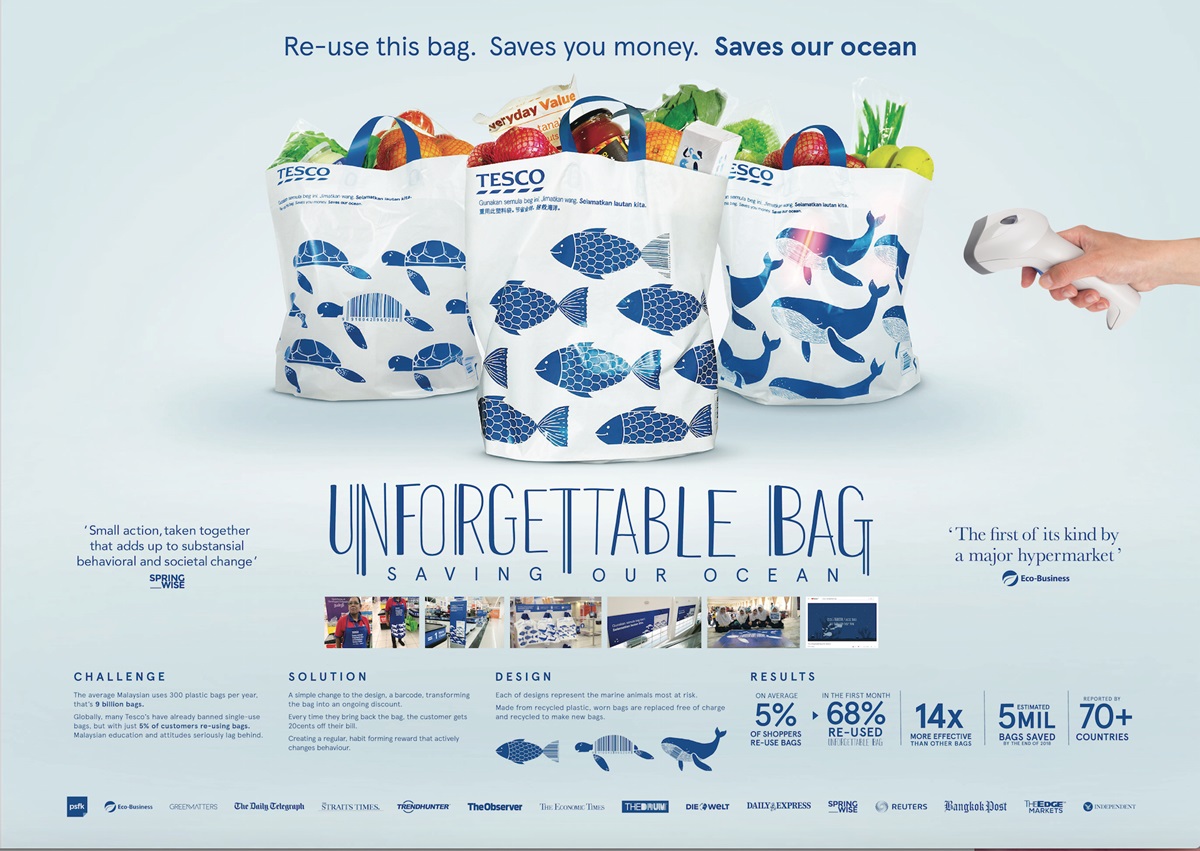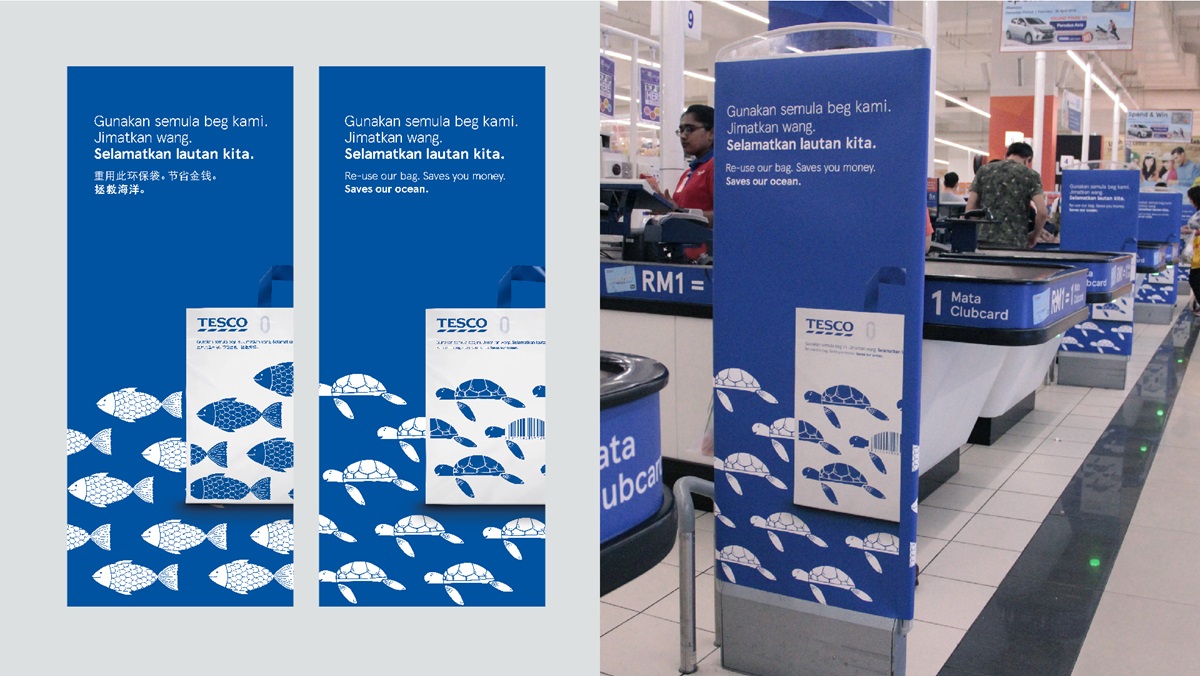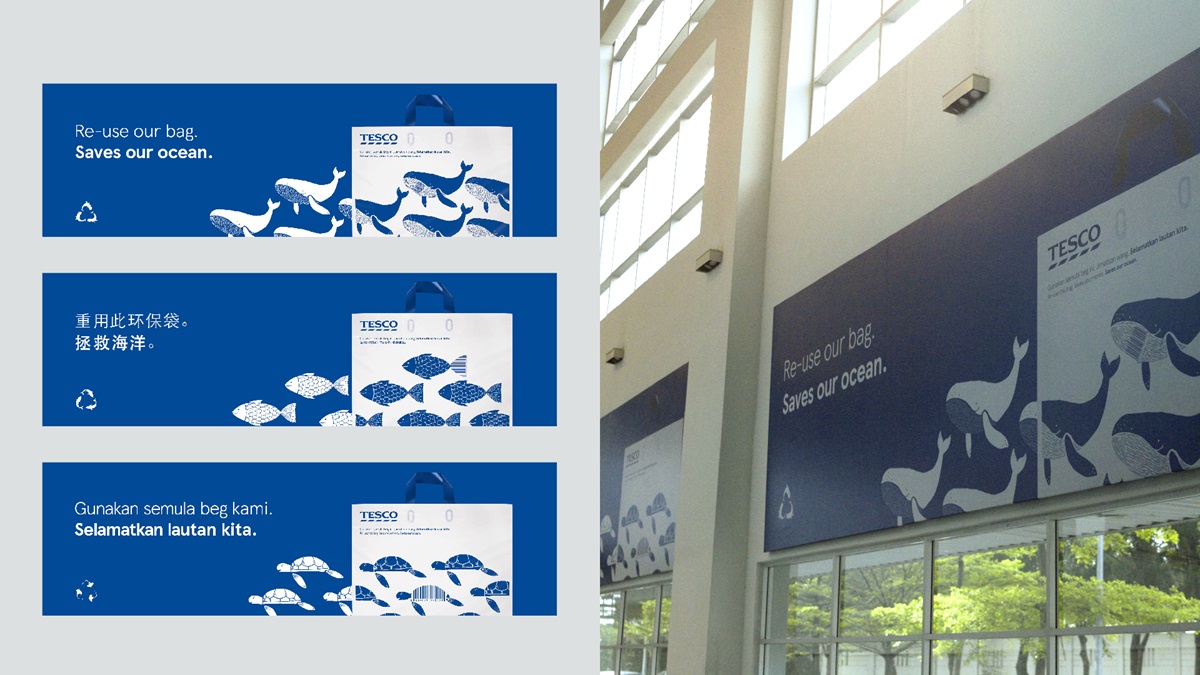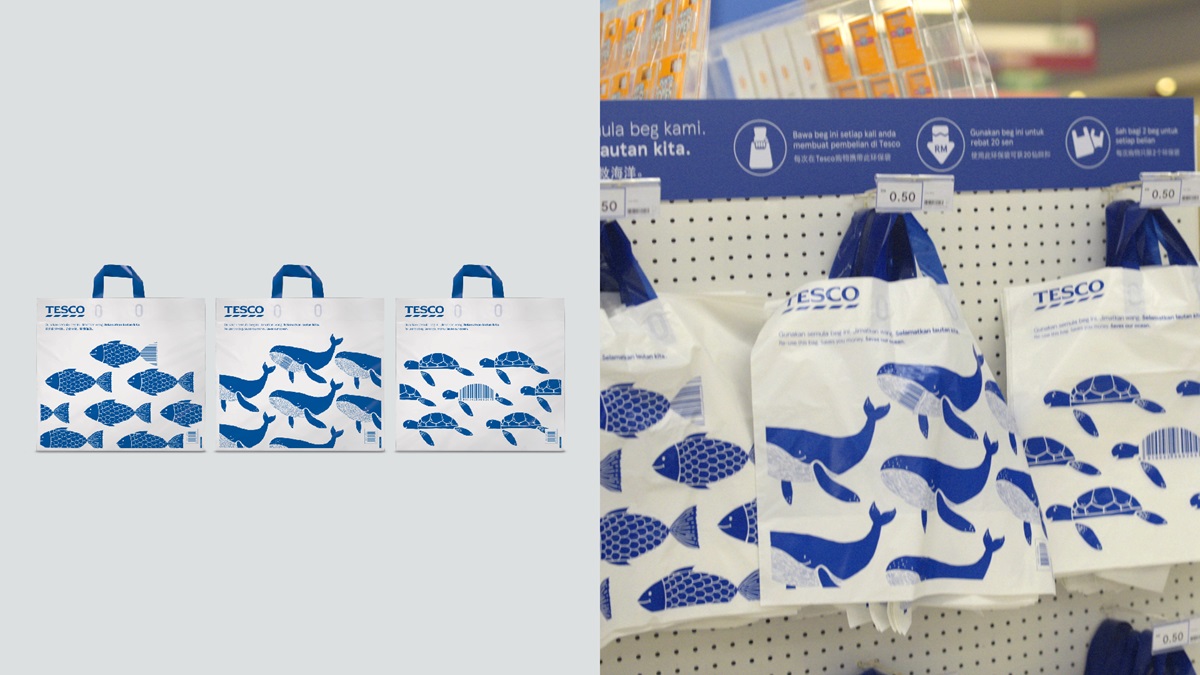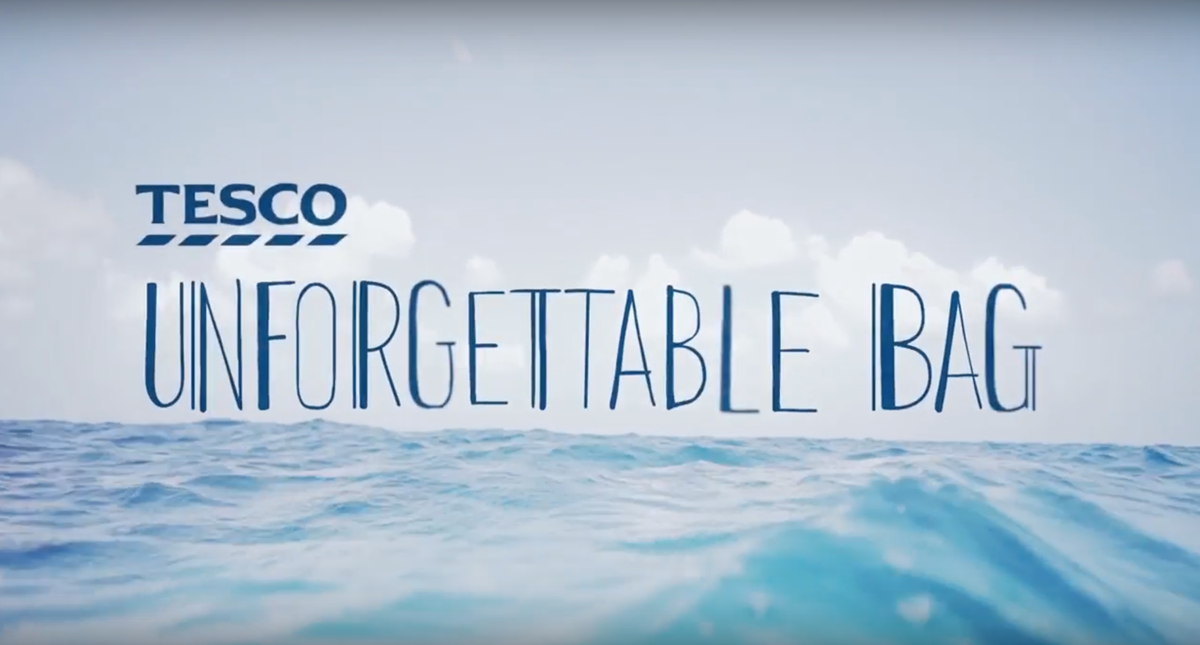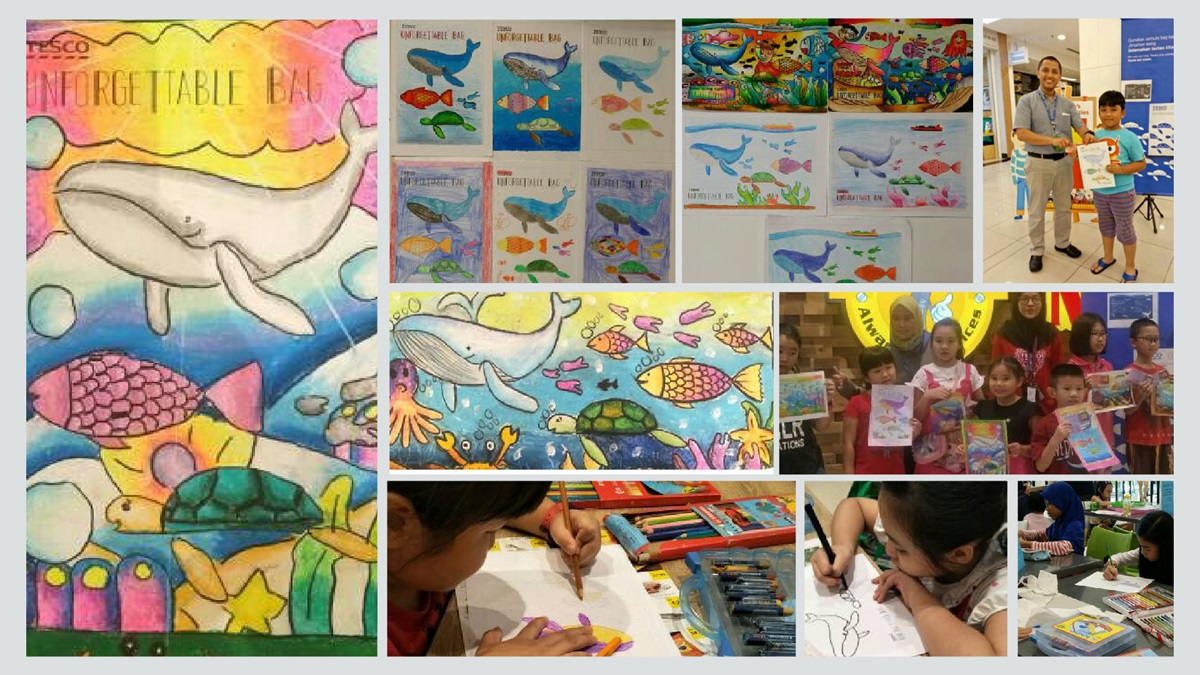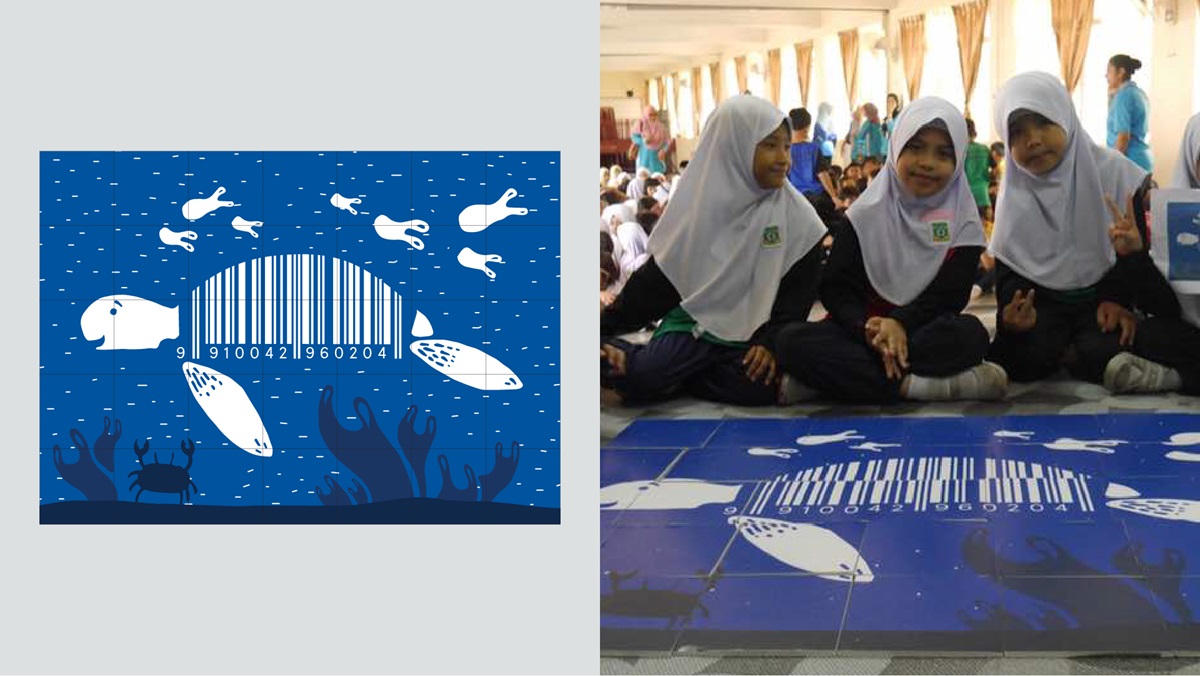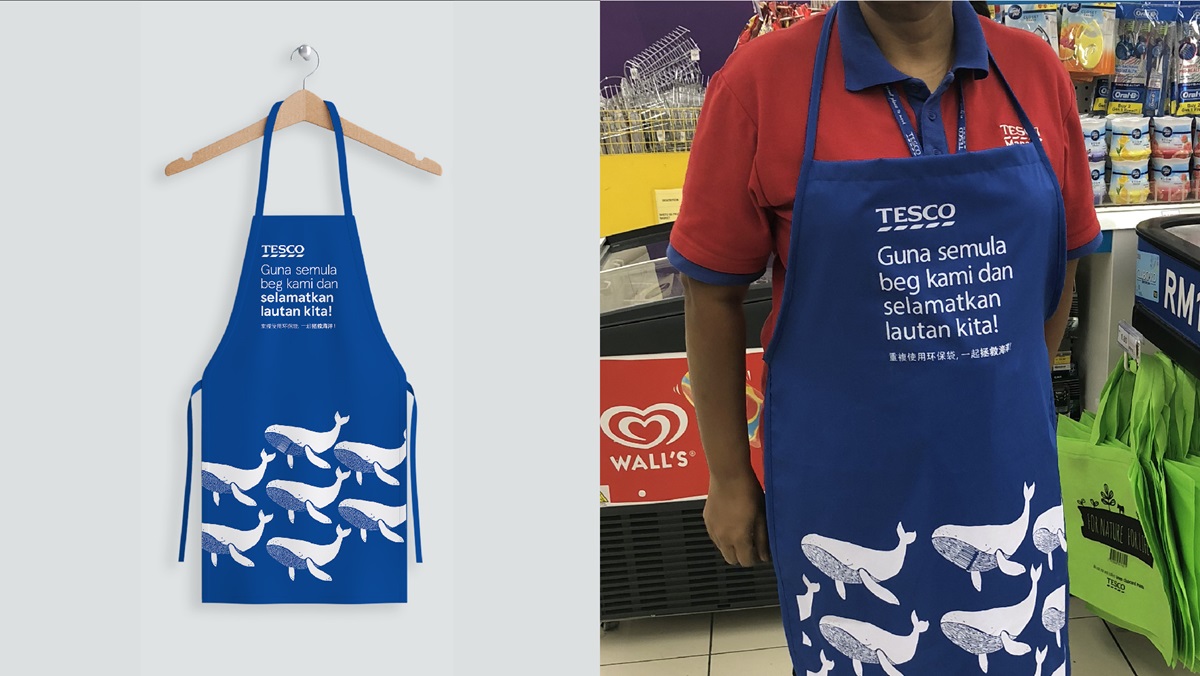Project Description
SITUATION
Malaysians love plastic bags. According to the Malaysian Plastic Manufacturers Association (MPMA), the average Malaysian uses 300 plastic bags per year - totaling up to 9 billion bags in total. The vast majority of them are single use. The figure is solely based on plastic bags taken away from hypermarkets and supermarkets which does not include plastic bags from departmental stores, morning and night markets, or even from all Malaysians’ favorite local hawker stall. According to Environment and Waste Management Specialist Dr Theng Lee Chong, the figure is far higher - the average Malaysian easily takes away between 3 to 5 plastic bags per day.
Plastic bag usage is killing all sorts of sea life at alarming rate. Globally, between 500 billion and 1 trillion plastic bags are being used each year but less than 10% are being recycled. Most of these plastic bags ended up either dumped in the landfill or in the ocean, chocking up marine life. More and more cases of dead whales, turtles, dolphins, seagulls and all sorts of birds washing onto shores and beaches all over the world with their gut chocked with plastic rubbish. Similarly, on Malaysian’s shore, in 2016 a carcass of a dolphin was found washed up on the beach of Pulau Jerejak in Penang the dolphin being chocked on plastic.
There are no obvious signals of behavioral change after almost a decade of “No plastic bags on Saturday” imposed by the government. In 2011, the government imposed the “No plastic bags on Saturday” campaign nationwide, forcing shopper to pay RM0.20 for each plastic bag they needed for their groceries. Retail outlets at all levels have joined their forces to support the effort to reduce the usage of plastic bags. However, no specific studies done that could indicate a reduction on the usage of plastic bags and leading the State Environment, Green Technology and Consumer Affairs committee chairman urging the government to review the policy. Still only and average of 5% of shoppers brought their own bags - especially for unplanned and spontaneous shoppers according to Tesco internal data.
The cost of convenience outweighs the cost for saving the environment. Even if shoppers are aware of the importance to re-use their shopping bags for the environment, most of the time they simply forget to bring their bag to the stores. Through internal survey, Tesco Malaysia learned that while Malaysians wants to stop using plastic bag, many often forget to bring their reusable bags to the store. Over 90% of the customers have their own carrier bags, but leave them in the car rather than bringing them into the store. And they do not seem to mind absorbing the RM0.20 for each new plastic bag used for convenience.
Other viable alternatives to plastic bags however are more environmentally unfriendly. Both British and Australian governments and key agencies have published comprehensive studies showed that paper bags, because it is thicker, have higher carbon footprint and required higher operational cost and material for disposal. A paper bag has to be used by at least four times to equal the carbon footprint of that a conventional plastic bag. The other alternative such as cotton tote bag which fares even worst because cotton is a resource-hungry crop. A cotton tote bag is estimated to require an average of at least 150 number of reuse to equal the environmental impact by a single plastic bag. In other words, replacing plastic shopping bags with these alternatives may be a case of reducing one problem but greatly exacerbating another.
News reports and debates of the issue of plastic bag pollution has never been higher especially with strong advocacy from environmentalists and government ministries to reviewing policy to solve the plastic bag problem more effectively. Also including the Minister of Housing and Local Government proposing the ban of single-use plastic packaging.
THE BRIEF
Recognizing cutting down single-use plastic bag as the immediate viable solution for the time being, Tesco Malaysia has halved the number of single-use plastic bags given between 2011 and 2017, but the rate of reduction is not fast enough. Our task is to accelerate the reduction in single use bags and help position Tesco as a leading sustainable champion and help build the path to total ban on plastic bags by 2020.
OBJECTIVE
Encourage customers to re-use their bags every time they shop.
Sources & Reference:
1. Edward, C. and Fry, J.M. 2011. Life cycle assessment of supermarket carrier bags: a review of the bags available. Report: SC030148. Environment Agency, Bristol
2. http://www.thesundaily.my/news/2018/06/27/awareness-negative-effects-plastic-bags-still-low-among-malaysians
3. http://www.thesundaily.my/news/2018/07/03/make-ban-single-use-plastics-work
4. https://www.star2.com/living/living-environment/2017/06/06/has-the-no-free-plastic-bags-ruling-in-selangor-and-kl-helped-the-environment/
5. https://www.worldofbuzz.com/minister-wants-to-ban-plasti
Agency Solution
THE KEY CHALLENGE
When the moral / environmental reality continually fails to make an impact and is there is no motivation for people to remember some of the bags they already have at home, how can we convince millions of shoppers to re-use their bags? With only 10,000USD budget at hand, how can we effect significant behavioral changes directly on a mass scale?
THE INSIGHT
Reguardless of race, colour or creed, all shoppers love getting a good deal. Part of the fun of shopping for Malaysians is the thrill of the chase and 3 in 5 Malaysian consumers say they enjoy taking the time to find bargain (62%) (Source: Neilsen’s survey on Global Retail Growth Strategy and Global Retail Loyalty Program). With fluctuations in currency, thousands camped overnight at petrol stations just to fill up their tank before the new petrol price kicks in so they can save RM 0.20 per litre of petrol. Like a trained Jedi warrior, if they see a fabric detergent priced at RM 15.90, they can sense that it’s RM0.30 cheaper somewhere else.
THE STRATEGY
Since the love of using plastic bags rooted deeply in every Malaysian and considering it's still the most viable and friendly option as opposed to paper bag and cotton tote bag, we used plastic bag itself as our very key vehicle to drive a behavioral shift. Instead of punishing people for forgetting to bring a bag, either financially or morally, we looked to reward them for bringing their bags back. By simply adding a simple change to an existing design, with a barcode, we transform the bag into an ongoing discount, the bag becomes a voucher, an incentive that they will chase after. We made a plastic bag that not only they would love it, but love it enough to keep it and reuse it again and again. Creating a regular, habit forming reward that actively changes behavior.
The bag is designed to cater to both opposing mindsets:
1. Re-use of bags drastically to reduce plastic waste which makes me feel good;
2. Re-use of bags actually saves me money on the weekly shop which makes me feel good too as a shopper.
THE EXECUTION
To implement the idea as quickly and cost effectively as possible, we re-designed an existing Tesco reusable bag. No set up costs, no production delay, simply a change to the cover design. Sold for 50 cents, the bag has an unlimited rebate of 20 cents. So users only have to re-use three times to be actually making a profit from their positive behavior. The bags are made of recyclable material, replaced for free when worn out and recycled into new bags. We created a unique design for the discount barcodes, integrating them into the form of the animals most at risk from plastics in the Malaysian oceans. The design style is simple and distinctive- to appeal to the widest spectrum of customers from young to old. The Fish, Turtle and Whale - were extended as campaign characters throughout the store on multiple POS materials - Posters, Aprons, Checkout Banners, scanner wraps. At launch, an animated film, helped launch the concept worldwide.
